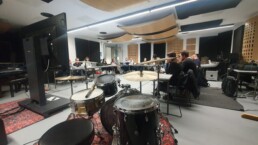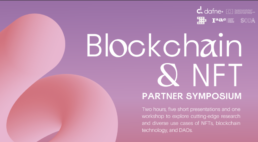The Role of AI in Web3: Shaping the Future of the Decentralized Internet
As the internet evolves into its next phase, known as Web3, the integration of Artificial Intelligence (AI) is playing a pivotal role in shaping this new digital landscape. Web3, often referred to as the decentralized web, promises to transform how we interact online by giving users more control, privacy, and ownership of their data. But how exactly does AI fit into this vision, and what impact will it have on the future of the internet?
What is Web3?
The digital experience is being redefined as powerful technologiues such as AI and Web3 appear in the landscape. In this sense, Web3 represents a shift from the centralized, data-driven model of Web2, where large corporations control vast amounts of user data, to a decentralized model where users have more autonomy. Built on blockchain technology, Web3 enables peer-to-peer interactions, decentralized applications (dApps), and smart contracts, all without the need for intermediaries. It’s a vision of the internet where users own their data and digital assets, and where transparency and security are paramount.
The Intersection of AI and Web3:
While Web3 focuses on decentralization and user empowerment, AI brings intelligence and automation to this new internet era and its playing a critical role in Web3. For example, to enhance user experience. AI can significantly improve the user experience in Web3 by personalizing content, recommendations, and interactions in decentralized applications. Unlike traditional systems where personalization often comes at the cost of privacy, AI in Web3 can offer tailored experiences without compromising user control over their data.
In Web3, AI can operate on decentralized networks, where AI models and data are distributed across nodes rather than being held by a central entity. This decentralization of AI ensures that no single organization has control over the intelligence generated, aligning with Web3’s ethos of user empowerment and transparency.
AI enhances the functionality of smart contracts in Web3 by enabling them to execute complex, automated decisions based on real-time data. This combination can lead to more sophisticated decentralized autonomous organizations (DAOs) that operate with minimal human intervention, driving efficiency and innovation.
One of the core promises of Web3 is enhanced privacy and security. AI can help achieve this by developing advanced encryption methods, detecting and mitigating security threats, and ensuring that user data remains private and secure within decentralized networks.
AI plays a crucial role in managing digital identities and tokenization in Web3. By leveraging AI, users can create and manage decentralized identities that are secure, verifiable, and interoperable across various dApps. AI can also help in managing and trading tokenized assets in a more efficient and intelligent manner.
As Web3 platforms grow, the challenge of moderating and curating content becomes more complex. AI can assist by automating content moderation processes in a decentralized manner, ensuring that communities remain safe and that content aligns with the values and rules set by the users themselves.
The Future of AI in Web3:
The synergy between AI and Web3 holds enormous potential for the future. As these technologies continue to develop, we can expect to see AI-driven dApps that offer unprecedented levels of personalization, security, and efficiency. Moreover, decentralized AI networks could democratize access to AI, allowing individuals and smaller organizations to leverage the power of AI without relying on big tech companies.
However, this integration also comes with challenges. Ensuring that AI operates ethically within decentralized systems, managing the vast amounts of data required for AI without compromising privacy, and developing robust security measures are all critical areas that need attention.
AI and Web3 are two of the most transformative technologies of our time, and their convergence is set to redefine the future of the internet. By combining the intelligence and automation of AI with the decentralization and user empowerment of Web3, we are moving toward a digital landscape that is more personalized, secure, and democratic. As we venture into this new era, the collaboration between AI and Web3 will play a central role in shaping the way we interact, create, and transact online.
DAFNE+ 6th Plenary Meeting in Manchester
This is the 6th occasion that all partners of DAFNE+ project get together to see how the project is progressing and to decide next steps. This time we have travelled to the English city of Manchester, home to the School of Digital Arts. Two days of intense work that has been fruitful for the project and tasks at hand.
These are the key points of the venue:
- We are entering the final phase of the project and we need to adress some extra efforts to make the DAO concepts comprenhensible.
- We are going to launch the intermediate version of the platform with some cool updates and improvements in the near future.
- We decided the location and timing of our next general meeting.
- We exchanged some useful thoughts about how we are going to approach this next phase of the project.
The next months are going to be exciting, we need to involve our communities in our discord so we can grow. Our discord is going to be key joinned together with DAFNE+ Platfom.
Let's continue the good and hard work!
Polygon upgrades MATIC into POL
Some time ago we were explaining what a network is to our community. Well today we will be writing about a change that it is going to be important within the Polygon netwrok, which is the one under which DAFNE+ Platform is operating.
In this sense, Polygon has executed a technical upgrade on their network on September 4th. They have converted its native cryptocurrency MATIC into the new POL token. This has been done on a 1:1 basis. The aim for this big movement is to enhance the token’s utility and pave the way for Polygon 2.0.
So basically the change will serve to better enable community participation in the network’s growth.
As for DAFNE+ Platform we will see how our technical partners implement this upgrade but, officially, Polygon successfully executed this upgrade on the testnet on July 17, and no broader issues were reported.
We will keep you on the loop for further news about this.
Web3: Understanding the Next Evolution of the Internet
The internet has come a long way since its creation, and we are now on the edge of a new era known as Web3. A new concept has arisen, Web3. But let's explain what is it exactly. Web3, also known as "decentralized web," represents the third phase in the evolution of the internet. It is built on the foundation of blockchain technology and emphasizes decentralization, user control, and peer-to-peer interactions. Unlike the centralized nature of Web2, where data and power are concentrated in the hands of a few large companies, Web3 aims to give users ownership over their data, digital assets, and online identities.
The Evolution of the Web: Web1, Web2, and Web3
To understand Web3, it’s important to look back at the earlier stages of the internet:
Web1 (The Static Web):
- Timeframe: Late 1980s to early 2000s
- Characteristics: Web1 was the first iteration of the internet, characterized by static web pages. Websites were mostly read-only, offering limited interactivity. Users could browse information, but they couldn’t interact with the content or create their own.
- Experience: Passive consumption of content. Users were primarily information consumers.
Web2 (The Social Web):
- Timeframe: Early 2000s to present
- Characteristics: Web2 brought about dynamic content, interactivity, and the rise of social media platforms. Users could create, share, and interact with content across various platforms (e.g., Facebook, YouTube, Instagram). However, this era also saw the centralization of power and data in the hands of a few tech giants.
- Experience: Active participation, but within platforms owned and controlled by large companies. Users create and interact with content, but their data is often monetized by these platforms.
Web3 (The Decentralized Web):
- Timeframe: Emerging era
- Characteristics: Web3 is the next step in the internet’s evolution, emphasizing decentralization, transparency, and user empowerment. It leverages blockchain technology, smart contracts, and decentralized applications (dApps) to enable peer-to-peer interactions without the need for intermediaries. Users have greater control over their data, digital assets, and online identities.
- Experience: Users not only interact and create content but also own their data, digital assets, and the platforms they use. Web3 promotes a more equitable internet where power is distributed rather than centralized.
Web3 VS Previous Web Versions
- Decentralization vs. Centralization:
- In Web2, data and power are centralized in the hands of a few corporations. Web3, on the other hand, is decentralized, meaning no single entity controls the network. Instead, power is distributed among users through blockchain networks.
- Ownership of Data:
- In Web2, users' data is often stored on centralized servers owned by tech companies, which can use or sell it without users’ explicit consent. Web3 gives users ownership of their data, enabling them to control how and where it is used.
- Intermediaries vs. Peer-to-Peer:
- Web2 relies on intermediaries (such as social media platforms, payment processors, etc.) to facilitate interactions. Web3 enables direct peer-to-peer interactions through blockchain technology, reducing the need for intermediaries.
- Security and Privacy:
- Web3 offers enhanced security and privacy features compared to Web2. With blockchain’s immutable and transparent ledger, users can trust that their data and transactions are secure. Additionally, users can interact with decentralized applications (dApps) without revealing their personal information.
- Monetization and Value:
- In Web2, platforms typically monetize user data through ads and other means, with little direct benefit to users. Web3 enables users to monetize their own data and digital assets, often through cryptocurrencies and tokens, allowing them to benefit directly from their online activities.
Web3 represents a significant shift in how we interact with the internet. By focusing on decentralization, user ownership, and transparency, Web3 promises to create a more equitable and user-centric digital world. As we move forward, the evolution of Web3 will likely unlock new possibilities for creativity, economic empowerment, and global collaboration, making the internet a truly open and democratic space for all.
What is Proof of Stake?
As blockchain technology continues to evolve, so do the methods we use to secure and maintain decentralized networks. One of the most promising developments in this space is Proof of Stake (PoS), an alternative to the energy-intensive Proof of Work (PoW) consensus mechanism, that promises to be a more sustainable option for the future of blockchain.
What is Proof of Stake (PoS)?
Proof of Stake (PoS) is a consensus algorithm used by blockchain networks to validate transactions and secure the network. Unlike Proof of Work, which relies on computational power and energy consumption, PoS operates on a different principle: participants in the network are selected to validate transactions and create new blocks based on the amount of cryptocurrency they hold and are willing to "stake" as collateral.
In PoS, the probability of being chosen as a validator (sometimes called a "forger" or "staker") is proportional to the amount of cryptocurrency a participant owns. This means that the more coins you stake, the higher your chances of being selected to add the next block to the blockchain. In return, validators receive rewards in the form of transaction fees or newly minted coins.
How Does Proof of Stake Work?
First of all, is about staking so participants in a PoS network lock up a certain amount of cryptocurrency in the blockchain as a "stake." This stake acts as collateral, ensuring that validators have a financial incentive to act honestly.
Then there is a validator selection, so validators are chosen to create new blocks based on a combination of factors, including the size of their stake, the amount of time they’ve been staking, and sometimes randomization. This selection process is designed to be fair and prevent any single participant from dominating the network.
After, the selected validator creates a new block and adds it to the blockchain. This block includes a record of recent transactions. Other validators then confirm the accuracy of the block, so its like a block validation.
For this work validators earn rewards, typically in the form of transaction fees or additional cryptocurrency. If a validator acts dishonestly (e.g., trying to approve fraudulent transactions), they risk losing their staked coins as a penalty.
The security of a PoS network is maintained by the financial stake of its participants. If a validator tries to undermine the network, they stand to lose their staked coins, which provides a strong deterrent against malicious behavior.
Advantages of Proof of Stake
- Energy Efficiency: One of the most significant advantages of PoS over PoW is its energy efficiency. Since PoS doesn’t require massive computational power to validate transactions, it consumes far less electricity, making it a more environmentally friendly option.
- Lower Barriers to Entry: PoS allows more people to participate in the network without needing expensive mining equipment. All you need is the cryptocurrency to stake, which democratizes access to the network and reduces centralization.
- Scalability: PoS networks can process transactions faster and more efficiently than PoW networks, making them more scalable and capable of handling a higher volume of transactions.
- Security: While PoS is different from PoW, it still offers strong security features. The financial incentive to act honestly, combined with penalties for malicious behavior, ensures that the network remains secure and trustworthy.
- Decentralization: By lowering the barriers to participation, PoS can help maintain or even increase decentralization. With more validators in the network, control is distributed more evenly, reducing the risk of centralization.
In this sense, several major blockchain networks have adopted or are transitioning to PoS, including Ethereum 2.0, Cardano and Polkadot.
Challenges of Proof of Stake
PoS offers many advantages, but it also faces challenges like wealth concentration, for example. Critics argue that PoS could lead to wealth concentration, where those with more cryptocurrency have more power in the network. However, many PoS networks are designed with mechanisms to mitigate this risk. Also it faces some security risks, while PoS is generally secure, it’s not immune to attacks. For example, a problem that could arise is if validators can validate multiple chains without penalty. However, most PoS networks have solutions to address this issue.
Proof of Stake represents a significant evolution in blockchain technology, offering a more sustainable, scalable, and accessible alternative to Proof of Work. As major networks like Ethereum embrace PoS, we’re likely to see increased adoption and innovation in this space. For those concerned about the environmental impact of blockchain, PoS provides a promising path forward, ensuring that the future of decentralized technology is not only secure and efficient but also greener.
Understanding the Backbone of Blockchain Security: What is Proof of Work?
Proof of Work (PoW) is one of the most fundamental concepts in the world of blockchain and cryptocurrencies. It’s a consensus mechanism that ensures the security and integrity of decentralized networks.
What is Proof of Work?
Proof of Work is a consensus algorithm used by many blockchain networks to validate transactions and secure the network. In a decentralized system, there’s no central authority to oversee and validate transactions, so a method is needed to ensure that all participants agree on the state of the blockchain. This is where Proof of Work comes in.
PoW requires participants, known as miners, to perform complex computational tasks to add new transactions to the blockchain. These tasks are resource-intensive and require significant computational power, hence the term "work." The first miner to successfully complete the task is rewarded with cryptocurrency, and their solution is used to validate the block of transactions. This block is then added to the blockchain, and the process repeats for the next block.
How does it work?
Here’s a simplified breakdown of how Proof of Work operates:
- Transaction Bundling: Transactions made by users on the network are bundled together into a block by miners. This block is like a page in the blockchain’s digital ledger.
- Solving the Puzzle: Miners compete to solve a complex mathematical puzzle associated with the block. This puzzle is difficult to solve but easy for others to verify. The process involves guessing a number called a "nonce" that, when combined with the block’s data, produces a hash (a string of characters) that meets certain criteria (usually a number of leading zeros).
- Validation and Reward: The first miner to find the correct nonce that solves the puzzle broadcasts their solution to the network. Other miners quickly verify the solution. If the solution is correct, the block is added to the blockchain, and the successful miner is rewarded with cryptocurrency (such as Bitcoin) for their effort.
- Network Security: Because the process of solving the puzzle requires substantial computational effort, it acts as a deterrent to malicious actors. To alter the blockchain, a hacker would need to redo the Proof of Work for every block up to the current block, which is practically impossible for a sufficiently large and distributed network.
Why is Proof of Work Important?
Proof of Work (PoW) plays a critical role in maintaining the security, transparency, and trustworthiness of blockchain networks. Concerning security, PoW makes it extremely difficult and expensive to manipulate the blockchain. The immense computational power required to solve the puzzles ensures that no single entity can easily alter the history of transactions.
Also, PoW supports decentralization by allowing anyone with the necessary hardware to participate in mining. This prevents central control and ensures that the network remains distributed.
Thanks to in a decentralized network, it ensures consensus which is essential so that all participants agree on the state of the blockchain. PoW provides a clear and objective method for achieving consensus without the need for a central authority.
Another key aspect of PoW is the prevention of double-spending as it ensures that once a transaction is recorded in the blockchain, it cannot be reversed. This prevents the double-spending problem, where a digital currency could be spent more than once.
Challenges of Proof of Work
Despite its strengths, Proof of Work is not without its challenges and needs to address some importan issues:
- Energy Consumption:
- PoW is notoriously energy-intensive. The computational power required to solve the puzzles consumes a large amount of electricity, leading to environmental concerns.
- Centralization of Mining:
- Over time, mining has become more centralized, with large mining pools and farms dominating the process. This concentration of power can undermine the decentralized nature of the network.
- Scalability:
- PoW can be slow and inefficient, limiting the number of transactions that can be processed in a given time. This has led to discussions about the scalability of PoW-based networks.
Proof of Work is the backbone of many blockchain networks, providing the security and consensus needed for decentralized systems to function effectively. While it has its challenges, PoW has proven to be a robust and reliable method for maintaining the integrity of the blockchain. As the blockchain space continues to evolve, ongoing innovations and alternative consensus mechanisms, such as Proof of Stake (PoS), are being explored to address the limitations of PoW while preserving the benefits it brings to the world of decentralized finance and beyond.
DAFNE+ in the Blockchain & NFT Partner Symposium
This week two of DAFNE+ partners celebrated the "Blockchain & NFT Partner Symposium". The School of Digital Arts from Manchester Metropolitan University (SODA) and the Institute of Advanced Arquitecture of Catalonia (IAAC) joined with FAB Lab BCN were in charge of organizing a two hour webinar in which to exchange impressions on a very exciting topic for the artistic and creative sector which is blockchain technology, DAOs and NFTs. Three topics that are bringing challenges to artists and designers amongst other creatives.
During the online event, that took place through DAFNE+ Discord channel, the project members had the chance to explain the DAFNE+ project as a whole. The technical partners explained to the attendants how the platform worked but also we had the opportunity to learn about licenses in the NFT space and what challenges need to be addressed.
Also, we could hear from some artistic entrepreneurships that were dealing with this new space and context. Very enriching conversations and insights were shared during this meeting.
Our Newletter is out!
Another edition of our newletter has just come out of the oven. If you are interested in learning how the project is progressing this piece of content is a really good way to be aware of the state of things.
Every semester we send a new one and this one counts its 4th edition already. Reading it we acknowledge that DAFNE+ platform has also a new edition. After a long period of trials and hard work some updates have been made to the platform and the tools included in it.
Hoping to offer a better version for our community of artists, designers, and musicians. Although it hasn't been easy due to the migration to Amoy testnet since the deprecation of Mumbai, we have managed to achieve this task.
Amongst these changes and updates, we can also watch an interview made to Iago Fernández-Cedrón, leader of the project from UPM.
In our newsletters we always introduce some educational content. This time we learn about smart contracts and it's utility in this new space.
So, remember if you want to be up to date with DAFNE+ project sign up here for the next one that will be due in December.
What is a network?
In the context of cryptocurrencies and NFTs, a network refers to the interconnected system of nodes that collectively operate and maintain the blockchain. This network ensures the integrity, security, and functionality of the cryptocurrency. Within a network you can find several components and functions that is interesting to know about, such as:
- Nodes: These are individual computers that participate in the network. Nodes can be full nodes, which store a complete copy of the blockchain, or lightweight nodes, which store only parts of the blockchain necessary for transactions.
- Blockchain: This is the distributed ledger that records all transactions made with the cryptocurrency. The blockchain is maintained and updated by the network of nodes.
- Miners/Validators: In networks that use Proof of Work (PoW), miners solve complex mathematical problems to add new blocks to the blockchain. In Proof of Stake (PoS) systems, validators are chosen based on the number of tokens they hold and are willing to "stake" as collateral.
- Consensus Mechanism: This is the protocol that nodes follow to agree on the state of the blockchain. Common consensus mechanisms include Proof of Work (PoW) and Proof of Stake (PoS). These mechanisms ensure that all nodes agree on the validity of transactions and the order in which they are added to the blockchain.
- Cryptographic Algorithms: These algorithms secure transactions and control the creation of new units of the cryptocurrency. Public and private key pairs are used to ensure that only the owner of a cryptocurrency can spend it.
- P2P Network (Peer-to-Peer Network): This is the decentralized architecture where nodes communicate and share information directly with each other, rather than through a centralized server. This structure helps to ensure the robustness and security of the network.
- Smart Contracts: In some networks, like Ethereum, smart contracts are self-executing contracts with the terms directly written into code. These contracts automatically execute and enforce the terms of an agreement based on predefined rules.
- Transactions: These are the records of cryptocurrency exchanges between participants in the network. Transactions are verified by nodes and added to the blockchain.
The network's decentralized nature ensures that no single entity has control over the entire system, making it resistant to censorship and fraud. Each component of the network works together to maintain the security, transparency, and functionality of the cryptocurrency and NFTs.
The Environmental Impact of NFTs: Exploring Sustainable Practices in the NFT Space
As NFTs (Non-Fungible Tokens) continue to reshape the art and digital collectibles world, a growing conversation around their environmental impact has emerged. Blockchain technology, which underpins NFTs, often relies on energy-intensive processes, leading to concerns about its ecological footprint. However, the NFT space is evolving, with artists, platforms, and developers increasingly adopting sustainable practices to mitigate these impacts. Let's explore the environmental concerns surrounding NFTs and highlight the efforts being made to create a more eco-friendly future.
Understanding the Environmental Impact
At the heart of the environmental concerns related to NFTs is the energy consumption associated with blockchain networks, particularly those using Proof of Work (PoW) consensus mechanisms, like Ethereum. These networks require vast amounts of computational power to validate transactions and mint new tokens, contributing to significant carbon emissions.
For many creators and collectors, this raises ethical questions. Is it possible to enjoy the benefits of NFTs without contributing to environmental degradation? The good news is that the NFT community is actively seeking solutions to reduce its ecological impact.
Sustainable Practices in the NFT Space
- Transition to Proof of Stake (PoS): One of the most promising developments in the blockchain space is the transition from Proof of Work to Proof of Stake (PoS) consensus mechanisms. PoS networks, such as the upgraded Ethereum 2.0 and other blockchains like Tezos and Cardano, require significantly less energy to operate, reducing their carbon footprint dramatically.
- Carbon Offsetting Initiatives: Some platforms and artists are taking direct action by offsetting the carbon emissions associated with NFT transactions. By investing in carbon credits or supporting reforestation projects, they aim to neutralize their environmental impact.
- Eco-Friendly Blockchain Platforms: Several blockchain platforms are designed with sustainability in mind. Tezos, for instance, is a PoS blockchain that has become popular among eco-conscious artists. Its energy-efficient design has attracted creators who want to minimize their environmental impact while still participating in the NFT space.
- Layer 2 Solutions: Layer 2 scaling solutions, such as Polygon (formerly Matic Network) and the one we use in DAFNE+ Platform, help reduce the environmental impact by processing transactions off the main Ethereum chain, which is more energy-intensive. By using these solutions, NFT platforms can lower their carbon footprint while maintaining security and decentralization.
- Artist-Led Initiatives: Many artists are leading the charge toward sustainability in the NFT space. Creators like Joanie Lemercier, who paused his NFT releases to address environmental concerns, have raised awareness and advocated for greener practices within the community. Other artists are exploring alternative blockchains and creative ways to offset their carbon emissions.
While the environmental impact of NFTs is a valid concern, the NFT community is not standing still. Through a combination of technology advancements, eco-friendly platforms, and conscious creators, the space is moving toward a more sustainable future. By supporting these initiatives and choosing platforms and artists who prioritize the planet, collectors and creators alike can enjoy the benefits of NFTs without compromising their commitment to sustainability.
As the conversation around environmental impact continues, it's crucial that we all play a part in advocating for and adopting greener practices in the NFT space. Together, we can ensure that the future of digital art and collectibles is not only innovative but also environmentally responsible.









